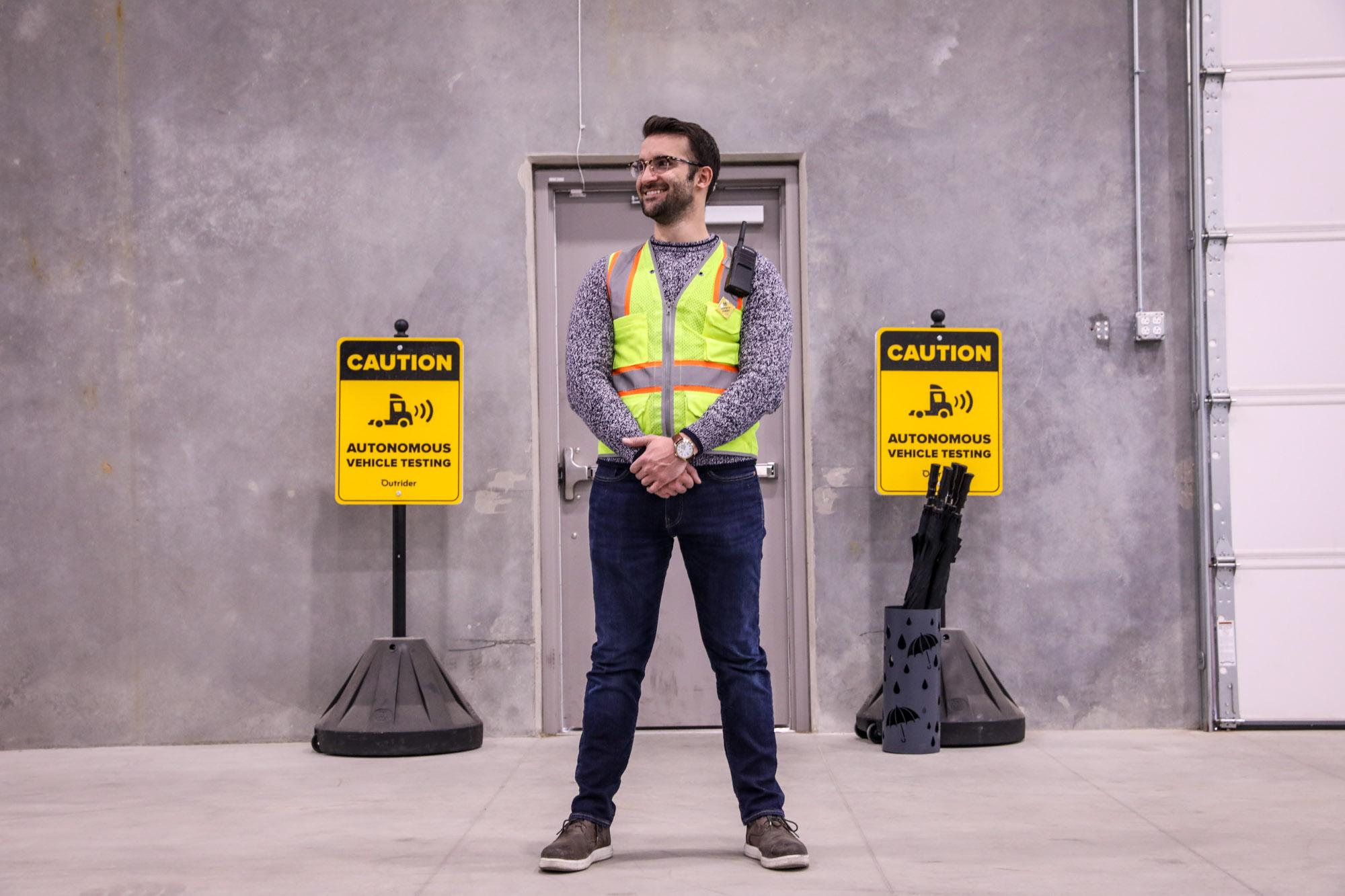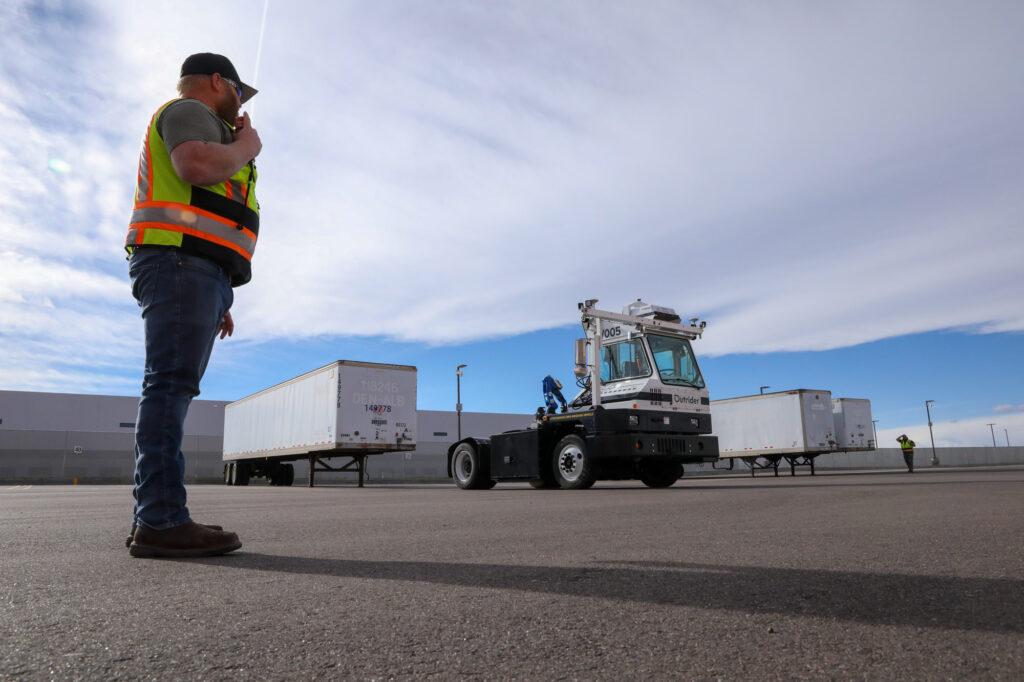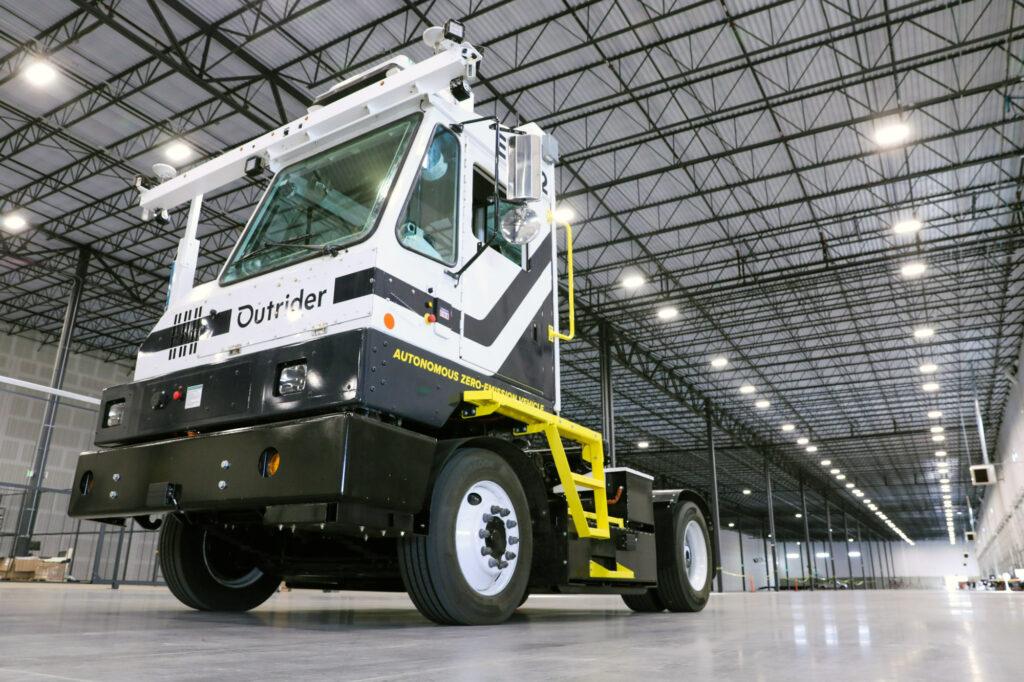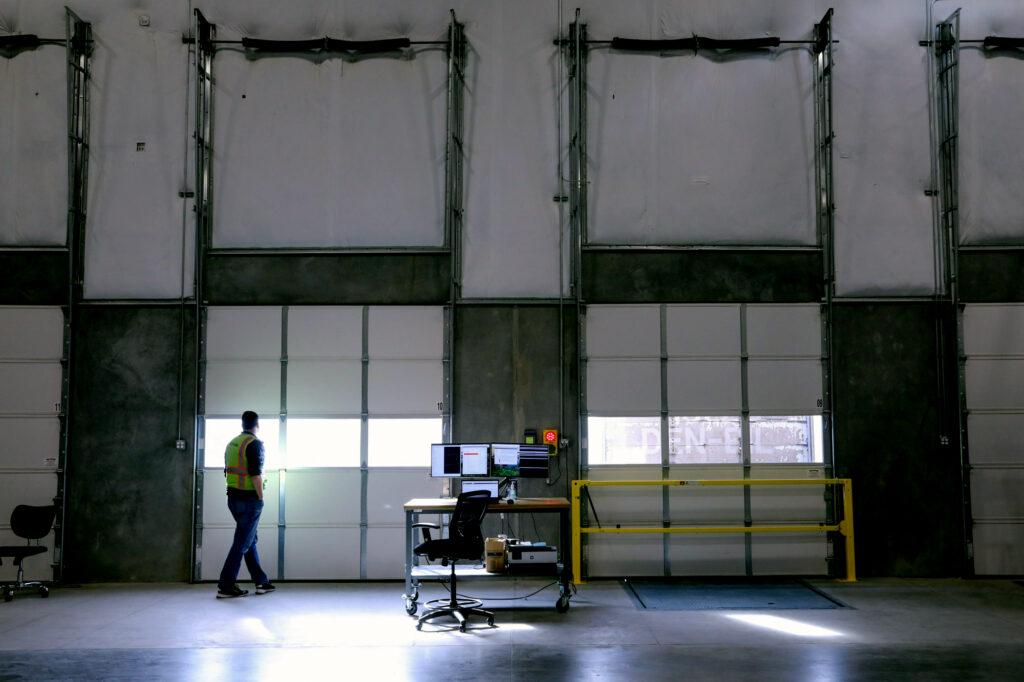
In a truck yard the size of a football field several miles north of Denver, a fleet of robotic trucks ferry semi-trailers between assigned spots and warehouse doors for 16 hours each day. A few humans keep watch.
Zach Moss is a 37-year-old former truck driver who now spends much of his 8-hour shift at a desk inside a nearby warehouse. There, he queues up moves and watches yard activity on a computer screen as the 80,000 lb. robots outside do his former job.
If something seems off, Moss hits a kill switch. Otherwise, he works on administrative tasks, talks to his human coworkers or grabs a snack.
“It’s a step up from being on the road all the time,” Moss said. “It kind of blows my mind that we’re going in this direction.”
Moss works as a test technician for Outrider. It’s a Golden-based robotics developer whose mission is to automate the bustling truck yards outside of tens of thousands of distribution warehouses across the world, where most everyday goods are boxed and shipped to customers.
Outrider lauds its main test site in Brighton as one of the most automated in the country. Analysts say it's a glimpse of what future shipping and freight yards will look like — a place where more robots than humans work, rendering people nearly obsolete.
Traditional human-run yards are dangerous and inefficient, said Andrew Smith, Outrider’s founder and CEO. Over-the-road truckers can waste hours dropping off and picking up trailers in the busy hubs, he said.
“These yards are one of the many bottlenecks in our current supply chain,” Smith said. “As our economy becomes more knowledge and service oriented, this is just one of those dull, dirty and dangerous jobs that we’ll see the economy shifting away from.”
Smith founded the company in 2017. His team spent three years designing and testing the technology behind the driverless trucks, which are electric and can run for almost an entire day on one charge.
It works like this: Human over-the-road truckers drop off semitrailers containing anything from food to electronics to toilet paper at a warehouse yard. Then, an Outrider robotic truck takes over.

Using proprietary software, a human queues up a truck to retrieve the specific trailer. The robotic truck then drives through the yard to the location of a specific trailer, relying on a combination of sensors.
Once in position, a robotic arm extends from the back of the truck. It scans the face of the trailer before connecting a pressurized air hose, which disengages the trailer's parking brakes. Then, the arm hitches the trailer onto the truck.
After that, the truck pulls the trailer across the yard to a warehouse door. Once connected to the dock, humans take over again, unloading goods and processing them for delivery.
“It’s a very monotonous task that takes place millions of times a day in yards,” Smith said. “The idea here is the person that was in that yard truck cab is now available to operate the system or do other work inside the warehouse, or be in the trucks that are over the road that can't be autonomous today.”
That’s important because the trucking industry is in the midst of a yearslong labor shortage made worse by the pandemic. The American Trucking Associations estimates the country is short around 80,000 drivers — a number that’s expected to rise in the coming years.
The pandemic has only accelerated the trend of replacing human workers with robots in warehouse and truck yard environments, said Darrell West, an author who studies how artificial intelligence is reshaping the labor market.
“It’s happening everywhere,” West said. “In the transportation arena, worker shortages have encouraged companies to experiment because they simply can’t find drivers.”
While people still outperform robots in a variety of tasks, economists predict that Outrider and other companies around the world are leading a shift that will displace millions of workers in retail, trucking and manufacturing over the coming decades.
In Colorado, roughly 477,000 workers are at especially high risk of having their jobs automated, according to an analysis from the Bell Policy Center, a progressive think tank.
A bevy of new, higher-skill jobs will emerge in their place, according to the analysis. The world will need more workers who can program and monitor machines that filled their old roles.

Nate Aswege, vice president of Prime Robotics, a Denver-based company that builds robots to work inside of freezers and other warehouse environments, said workers shouldn’t fear the change.
Many autonomous inventions will swap repetitive, labor-intensive jobs for more stimulating work, he said. More than 1 million people currently work in warehouse and storage facility environments in the United States.
“We’re getting rid of nightmarish jobs,” Aswege said.
Outrider aims to perfect its driverless trucks at its test yard in Brighton and sell them to major retailers and logistics companies who want to shrink their labor costs or can’t find enough workers to keep up with demand.
The company’s trucks are already in real-world yards across the country. Outrider recently announced that its trucks had completed 1,000 trailer moves at a Chicago-area distribution center for Georgia Pacific, one of the world’s largest manufacturers of paper products.
Several other Fortune 500 companies are testing the autonomous trucks at their warehouses, according to Outrider. Some smaller Colorado e-commerce and retail companies are also piloting the technology.
The company hopes to see that growth continue into next year’s holiday shopping season.
For Tyler Hults, a test site manager for Outrider, leaving over-the-road trucking was a no-brainer. Hults made the switch in 2019, after years of working long-haul routes across the country.
Navigating “disorganized and dangerous” truck yards was the worst part of the job, he said. He now spends most days developing and overseeing test runs at the company’s Brighton yard.
“Having a robot do this is the ultimate answer,” Hults said.
He’s not concerned that machines will take over the labor market. His job, after all, didn’t even exist until a few years ago.
Hults, who doesn’t have a college degree, gets regular training from Outrider to keep up with the technology, which is constantly evolving. And he says pay is equal to his past career.
“It seems like there’s new autonomous companies every day,” he said. “This is the future and I want to be a part of this.”

Related stories
- As jobs evolve with robots and tech there are challenges and opportunities
- Supply chain woes mean Colorado’s vast market of outdoors goods are more expensive, stuck on boats and even looking different
- Better air, less climate impact possible if companies, government switch to cleaner fleet vehicles
- CDOT pledges to track air quality as part of I-270 rebuild, but pollution-choked Commerce City residents are skeptical
- Colorado is sure it can expand highways while also meeting climate goals. history suggests that’ll be a tough climb








